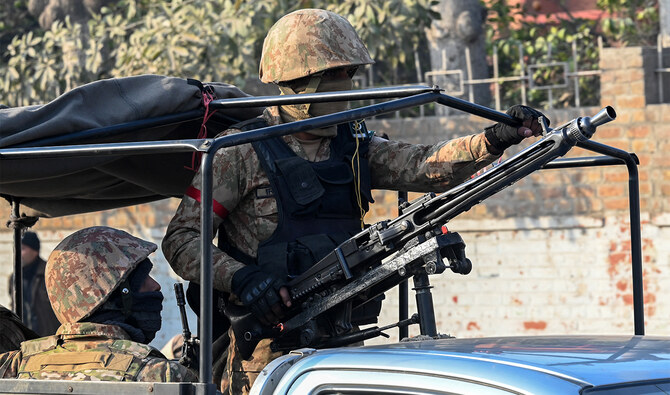ISLAMABAD: Pakistan will not renegotiate the Indus Waters Treaty (IWT), brokered by the World Bank, with India, Pakistani Information Minister Attaullah Tarar said on Sunday, following India’s suspension of the 1960 agreement that regulates water-sharing from the Indus River and its tributaries.
Pakistan has rights to the western rivers— Indus, Jhelum, and Chenab— for irrigation, drinking, and non-consumptive uses like hydropower, according to the Indus Waters Treaty. India controls the eastern rivers— Ravi, Beas, and Sutlej— for unrestricted use but must not significantly alter their flow. India can use the western rivers for limited purposes such as power generation and irrigation, without storing or diverting large volumes.
Relations between the neighbors have deteriorated amid heightened tensions over an attack in Indian-administered Kashmir’s Pahalgam resort town that killed 26 tourists on April 22. New Delhi has accused Islamabad of involvement in the attack. Pakistan has denied any involvement and has expressed its willingness to participate in a “credible and transparent” international investigation into the attack.
Both sides have since announced a series of punitive measures against each other, with India suspending the Indus Waters Treaty. Pakistan has described the suspension an “act of war,” vowing to defend its water rights. There are also mounting fears that India may carry out limited airstrikes or special forces raids near the border with Pakistan, raising concerns that the nuclear-armed rivals may once again come close to an all-out war.
“I do not believe so,” Tarar said, when asked by foreign media journalists whether Pakistan will accept India’s long-term demand of renegotiating the IWT.
“If ever there is reconsideration of terms, which I don’t see happening anytime in the near future, then I think India will lose out and Pakistan will benefit,” he said, adding that Pakistan, being the lower riparian, had more rights and was entitled to more water.
The top Pakistani leadership has clearly stated that if the country’s water is stopped or diverted, it will respond with “full force,” according to Tarar. Pakistan is prepared to fight and defend its water rights at every forum.
“It does not mean that we are seeking an arbitration, I think that we have always been very active and our legal team works on future prospects as well, if faced with any situation,” he said.
The minister denied any back-channel contacts between the two nuclear-armed neighbors to ease the situation at the moment.
The two neighbors have fought three wars, including two of them on the disputed region of Kashmir, since their independence from British rule in 1947. Both rule the Himalayan territory in part but claim it in full.
“At this point in time, there is no contact. There is no back channel [talks with India],” he said.
Tarar said the international community had not responded to New Delhi’s claims about the Pahalgam attack, according to India’s hopes, which was a “diplomatic success” of Pakistan.
“The international community believes in Pakistan, believes in the effort that Pakistan has made in the war against terror,” he said.
“Diplomatically, I consider statements from the world leaders as Pakistan’s successes as India was expecting a lot from the rest of the world by playing victim, but you cannot play victim without having evidence in your support.”
The minister said India had “built a false narrative on a completely baseless premise” in order to divert Pakistan’s attention from the western border with Afghanistan where it has been successfully fighting militancy.
“But we will continue to fight the war against terrorism and will continue to protect the world, the citizens of the world,” he said.
Tarar said the reason Pakistan had called for an independent, impartial, and transparent inquiry into the Pahalgam attack was because its “hands are clean,” accusing India of supporting extremism and encouraging attacks on Pakistani missions abroad.
“Their extremist ideology, through which they are encouraging their people to attack our foreign missions, has led to very unfortunate incidents,” he said.
“In London, our high commissioner was attacked twice, and stones were pelted [at the Pakistani high commission]. Let me reiterate, they shouldn’t attack our space, our world, our people as Pakistan has always defended itself.”
















